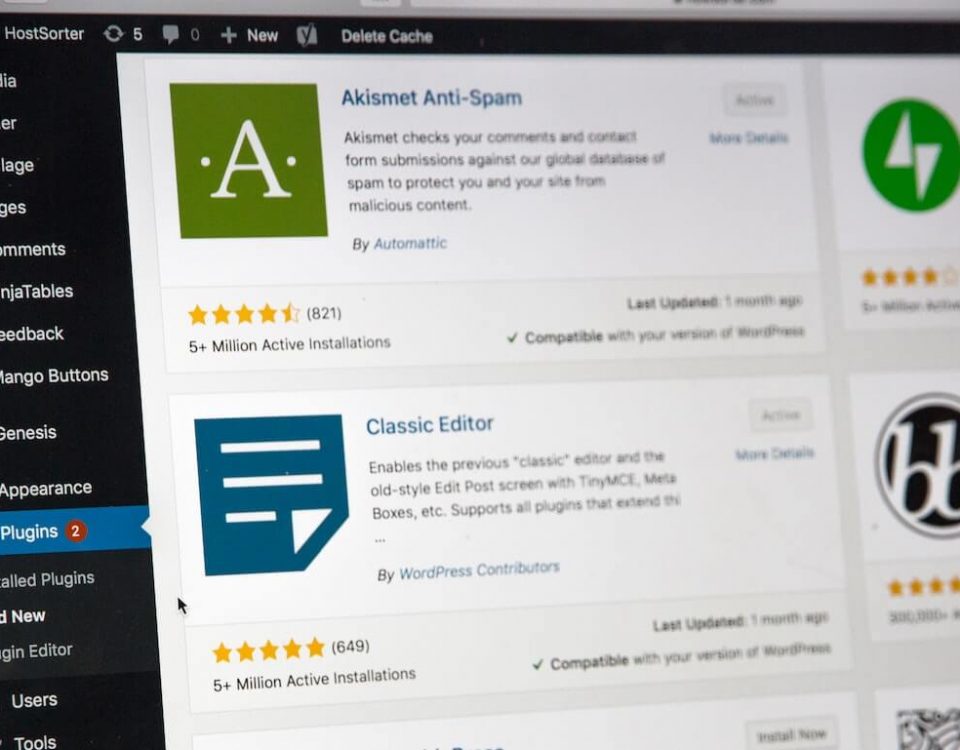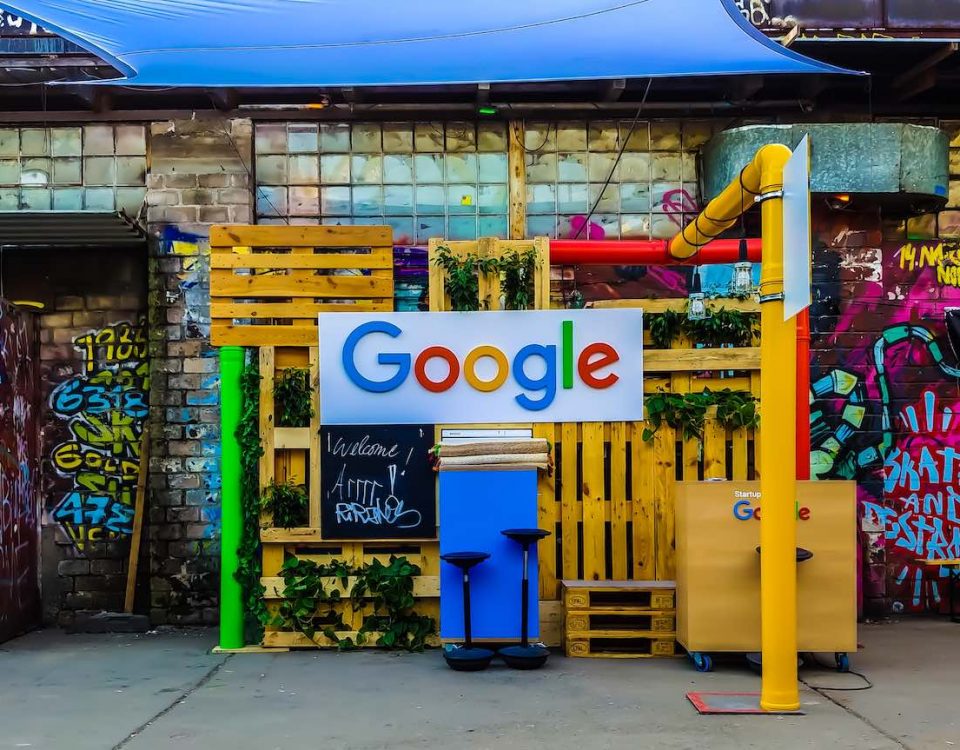Google’s Top SEO Ranking Factors: What Matters Most

How to Choose a WordPress Theme And Whether to Build-it-yourself or Hire a Pro?
February 22, 2016
Five SEO Tactics that May be Killing Your Rankings
March 7, 2016Tactics that will Improve your Rankings in 30 Days
What is SEO and why is it no longer an option?
Search Engine Optimization (SEO) is the process of improving the visibility of your website so that search engines like Google, Bing, Yahoo, can easily find and index it. How well your site is search engine optimized determines how easily your customers and prospects can find your site. Most visitors expect that high-ranking results should contain exactly what they are searching for. For the website owner, SEO is crucial for generating high-quality traffic, expanding brand awareness, driving more sales, while having a positive impact on your business and brand reputation.
Possessing a strong understanding of today’s ranking factors is the key to achieving consistently high search engine rankings. Each factor has multiple elements and technical requirements that must be met to produce high Search Engine Page Ranking Results (SERPs). Although Google’s algorithms change all the time (around 500 – 600 times each year), there are some SEO ranking factors that consistently remain important.
There are two main groups of SEO factors that can determine how well your website will rank:
- On Page SEO Ranking Factors
- Off Page SEO Ranking Factors
What are On-Page Factors?
On-page optimization refers to specific factors that have an impact on how your website or webpage ranks in natural search results. On-page SEO refers to all measures that can be taken directly within the website in order to improve its position in the search rankings.
The quality of your on-page SEO factors are in your direct control.
The intention is to help the website achieve SERP for specific keywords and phrases. There are three types of On-Page SEO factors:
- Technical Factors
Technical Factors represent a collective set tactics that are performed on the pages of your site to support top organic page ranking. Technical ranking factors include:
- Page descriptions (meta-description)
- H1 and H2 tags within the content or page
- Having a high number of landing pages and high SEO visibility
- Highly-optimized and searchable content on interior or landing pages within a website (90% of SERPs return interior pages of a website)
- Using a “.com” domain (81% of top ranking results use “.com” domains)
- Pages in the top 10 search engine rankings load very quickly and have an average content length of 2032 to 2494 words.
- Do not use “Flash” (Less than 5% of the top ranking pages use Flash)
- Use URLS with no more than 3 – 5 words in the file path – those words that follow the last “/” in your domain name URL
- User Experience Factors
User experience can be boosted with adequate internal site structure and page information and design, intuitive navigation, images and videos. User Experience Factors are becoming ever more important in achieving high page ranking. Those with the highest page ranking had in common the following user experience factors:
- Optimization of internal site structure and page information to maximize the crawlability of the search engine bots and to maximize an intuitive and natural user experience.
- Images improve and enhance SERPs and user experience. They also increase the time visitors spend on your site.
- Videos increase your visitor experience and time spent on your site. Pages with videos are shared more frequently on social networks (social sharing is a significant factor in the SERP algorithm).
- Elements such as buttons, menus and other interactive elements enhance the structure of content and increases page rankings.
- Bulleted lists improve content structure and result in higher page rankings.
- User Signals – Search engines analyze everything from content structure, key words and phrases to how long visitors stay on your web pages and much more. When visitors come to your site, their “User Signals” are sent back to the search engines. These user signals help the search engines understand whether the user was satisfied with the results of their search. Shorter time on your site returns lower User Signals. This information in turn, tells search engines how low or high to rank you for those search terms.
- Click Through Rate (CTR) – The higher the CTR (clicks on search engine results to your site), the better. Optimizing your web page’s meta description and the use of “rich snippets” improves CTR.
- Time on Site – The longer a visitor stays on your page, the better your rankings can become. Optimize the time users spend on your site by increasing videos, internal links and bulleted lists, create engaging content and leverage elements that help structure your content.
- Bounce Rate – This reveals the percentage of visitors that click back to the browser and return to the SERPs in search of a better result. If you have pages with high bounce rates, you’ll want to give them an overhaul or delete them altogether.
- Content
The absolute, singular, most important SEO factor is creating good content – the kind of content your target user is seeking; the kind of content that speaks to the user as they navigate their way through the buyer’s journey. Excellent content is the most significant and common factor of the top ranking web pages.
Content ranking factors include:
- Keywords – Studies continue to reflect the decreasing value of keywords as a standalone SEO practice. Keyword and phrase optimization is important; however, its importance is favored when it is in the context of highly-desired, high-relevant, well-structured content. Content relevance is much more important than keyword optimization alone.
- Keywords in Internal Links – Corresponding keywords within internal links has a positive effect on SERP when good internal link structure is emphasized.
- Keywords in External Links – The main keyword for which your page or site is ranked should not be linked to an external page – this gives the page to which it is linked higher relevancy.
- Readability scores are becoming an ever-increasing factor in SERPs. The top 10 ranking pages have a score of approximately 76. Your word processing application may have a Flesh-Kincaid readability analysis or you can use this free CheckText.org tool.
- Proof and Relevant Terms – Proof Terms are words that should naturally be included in the topic of the content. 78% of the high page rankers use proof terms. Relevant Terms are words and terms that are related to the content. If you were writing an article about dogs, you might include words like veterinarian or leash. About 49% of the top 30 sites had Relevant Terms present in the content of their highest ranking pages.
- Number of Backlinks – Correlating with the highest-ranking pages is a significantly higher number of backlinks than competing pages.
- Referring Domains – The Home Pages of many popular brands naturally have referral links to them. Brand awareness coupled with excellent content result in legitimate backlinks that have a positive effect on your page ranking. Strategically positioning your domain as a brand with valuable content will help with the development of good backlinks.
- Current Content Ranks High -Web pages that appear in the middle of the first SERP page contain the most links from news domains. This correlation makes it easy to naturally conclude that fresh, current content ranks highly.
- Aged Backlinks – Web pages that rank in the top 1 – 4 positions have older backlinks.
- Word Count has become a significant and revealing factor in SERPs. The average word count for top-ranking content has increased and is now in the range of 2032 to 2494 words. Be sure to structure your content and focus on providing comprehensive coverage of your topic.
According to Moz an ideal web page should do all of the following:
· Be hyper-relevant to a specific topic (usually a product or single object):
- Include subject in title tag
- Include subject in URL
- Include subject in image alt text
- Specify subject several times throughout text content
- Provide unique content about a given subject
- Link back to its category page
- Link back to its subcategory page (If applicable)
- Link back to its homepage (normally accomplished with an image link showing the website logo on the top left of a page)
What are Off-Page Factors?
Off-page ranking factors are those that are not controlled by you or the coding on your website. They are located “off the web page” and influenced by third party web sites. Off-page factors can have a huge impact on SEO ranking because they show how your website is perceived by others. In addition to on-page factors, search engines analyze off-page factors because website creators and SEO strategists cannot manipulate them to inflate ranking.
A web site that is useful is more likely to have references (links) from other websites; it is more likely to be mentioned on social media and it is more likely to be bookmarked and shared among other users. So, the most important off-page SEO factors are:
- Inbound links – These are links that are published on third party websites and that redirect to your website. They are also referred to as a backlinks or incoming links. Search engines see relevant inbound links as a sign of credibility and subject matter expertise. The number of inbound links is one the most important factors for determining your position in the search engine results. The quality of those links is significant, as well. Links from well-established, credible websites are most valuable.
- Social media – Your online presence is a very important off-page factor. The more social media accounts you have and the more followers and attention on social media you get, the higher ranked your website will be by search engines.
- Social bookmarking – Maybe not so popular these days, but social bookmarking is still considered a good way to boost your website ranking. Do some social bookmarking in well known bookmarking sites like Digg, Delicious, StumbleUpon, Propeller, etc. to promote your content.
Are you ready to improve your rankings?
SEO is constantly changing and can be hard to keep up. Knowing the basics is not enough. If your SEO provider isn’t familiar with the factors and techniques that are yielding the highest results today, your website will decline in the SERPs. Declining rankings are risky and expensive. Our team of experts understands the various search engine-ranking factors and we significant amounts of time learning and staying abreast of changes before they happen.
Free SEO Analysis!
Learn Exactly What to do to Improve Your Search Engine Rankings
We’ll provide a complimentary SEO analysis for you so you can see for yourself how well you are doing in the search engines, what gaps you should consider closing and what opportunities are awaiting you.
Have questions? Call us!





